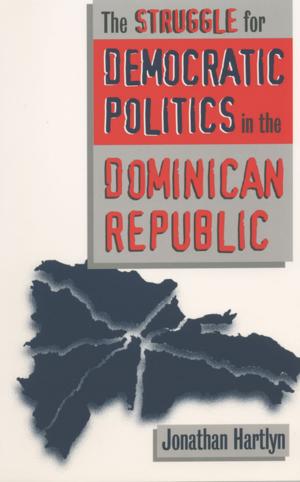Break Beats in the Bronx
Rediscovering Hip-Hop's Early Years
Nonfiction, Entertainment, Music, Music Styles, Pop & Rock, Rap, Social & Cultural Studies, Social Science, Sociology| Author: | Joseph C. Ewoodzie | ISBN: | 9781469632766 |
| Publisher: | The University of North Carolina Press | Publication: | August 8, 2017 |
| Imprint: | The University of North Carolina Press | Language: | English |
| Author: | Joseph C. Ewoodzie |
| ISBN: | 9781469632766 |
| Publisher: | The University of North Carolina Press |
| Publication: | August 8, 2017 |
| Imprint: | The University of North Carolina Press |
| Language: | English |
The origin story of hip-hop—one that involves Kool Herc DJing a house party on Sedgwick Avenue in the Bronx—has become received wisdom. But Joseph C. Ewoodzie Jr. argues that the full story remains to be told. In vibrant prose, he combines never-before-used archival material with searching questions about the symbolic boundaries that have divided our understanding of the music. In Break Beats in the Bronx, Ewoodzie portrays the creative process that brought about what we now know as hip-hop and shows that the art form was a result of serendipitous events, accidents, calculated successes, and failures that, almost magically, came together. In doing so, he questions the unexamined assumptions about hip-hop's beginnings, including why there are just four traditional elements—DJing, MCing, breaking, and graffiti writing—and not others, why the South Bronx and not any other borough or city is considered the cradle of the form, and which artists besides Kool Herc, Afrika Bambaataa, and Grandmaster Flash founded the genre. Ewoodzie answers these and many other questions about hip-hop's beginnings. Unearthing new evidence, he shows what occurred during the crucial but surprisingly underexamined years between 1975 and 1979 and argues that it was during this period that the internal logic and conventions of the scene were formed.
The origin story of hip-hop—one that involves Kool Herc DJing a house party on Sedgwick Avenue in the Bronx—has become received wisdom. But Joseph C. Ewoodzie Jr. argues that the full story remains to be told. In vibrant prose, he combines never-before-used archival material with searching questions about the symbolic boundaries that have divided our understanding of the music. In Break Beats in the Bronx, Ewoodzie portrays the creative process that brought about what we now know as hip-hop and shows that the art form was a result of serendipitous events, accidents, calculated successes, and failures that, almost magically, came together. In doing so, he questions the unexamined assumptions about hip-hop's beginnings, including why there are just four traditional elements—DJing, MCing, breaking, and graffiti writing—and not others, why the South Bronx and not any other borough or city is considered the cradle of the form, and which artists besides Kool Herc, Afrika Bambaataa, and Grandmaster Flash founded the genre. Ewoodzie answers these and many other questions about hip-hop's beginnings. Unearthing new evidence, he shows what occurred during the crucial but surprisingly underexamined years between 1975 and 1979 and argues that it was during this period that the internal logic and conventions of the scene were formed.















